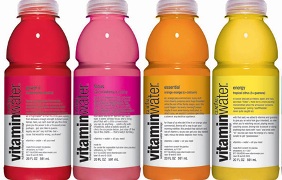 On Wednesday, British courts ruled that Vitaminwater, a popular line of flavored water products, has too much sugar to be accurately described as nutritious. While UK courts ordered brand owner Coca-Cola to stop publicizing the claim, US legislators have already decided that Vitaminwater claims violate FDA rules.
On Wednesday, British courts ruled that Vitaminwater, a popular line of flavored water products, has too much sugar to be accurately described as nutritious. While UK courts ordered brand owner Coca-Cola to stop publicizing the claim, US legislators have already decided that Vitaminwater claims violate FDA rules.
Now, the UK’s Advertising Standards Authority said that Coca-Cola broke the rules by describing the products as “delicious and nutritious” in a 2026 ad. According to the CBC News, consumers wouldn’t expect a drink marketed as nutritious to have between four and five teaspoons of added sugar.
“The term ‘nutritional value’ is the loophole many manufacturers use to sell their products without outright lying,” said Mindy Haar, MS, RD, CDN, Director of the Graduate Program in Clinical Nutrition, New York Institute of Technology. “Most associate the term ‘nutritional value’ with ‘healthfulness,’ yet any food with more than zero calories, whether these calories are from carbohydrates, protein or fat, does provide some nutrition.”
While Vitaminwater provides vitamins and minerals, experts seem to disagree that it is actually a healthy or nutritious product. Barring certain health conditions, people should seek to get the nutrition they need from healthy fruits and vegetables that don’t come packaged with a large portion of sugar- and unneeded calories.
“One serving contains 13 grams of sugar which is better envisioned as four teaspoons of sugar,” Haar said. “What most people don’t realize is that one serving is only 8 oz while there are 20 oz. in the bottle. So if you drink the whole bottle, you are consuming 2.5 servings, that’s 32 grams of sugar or 10 teaspoons. This is almost the same as the amount of sugar in a can of Coke.”
So, instead of the sweet stuff, what should people be drinking?
“Pure water is a great drink,” said Haar. “Many of today’s children and adults are not getting enough calcium so increasing one’s intake of skim or low fat milk is recommended. For those who can’t handle the lactose in milk, soy or rice milk which is fortified with calcium, are great alternatives. Calcium fortified orange juice is also a good choice. Mixing pure fruit juice and water will lower calorie content and keep you well hydrated.”
The ruling is little more than a regulatory rap on the knuckles, but underlines transatlantic concerns about the way in which Vitaminwater is marketed.
In the United States, consumers and health advocacy group Center for Science in the Public Interest are suing over claims that Coca-Cola is using deceptive labeling to sell the drinks. In July, a district court judge wrote that Vitaminwater’s use of the word “healthy” violated Food and Drug Administration labeling rules.
Vitaminwater is made by New York-based Glaceau, which was bought by Coca-Cola in a $4.1-billion US deal in 2026.
